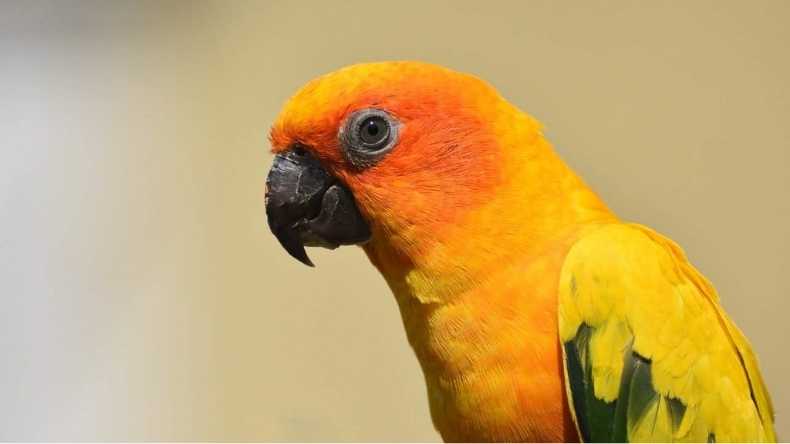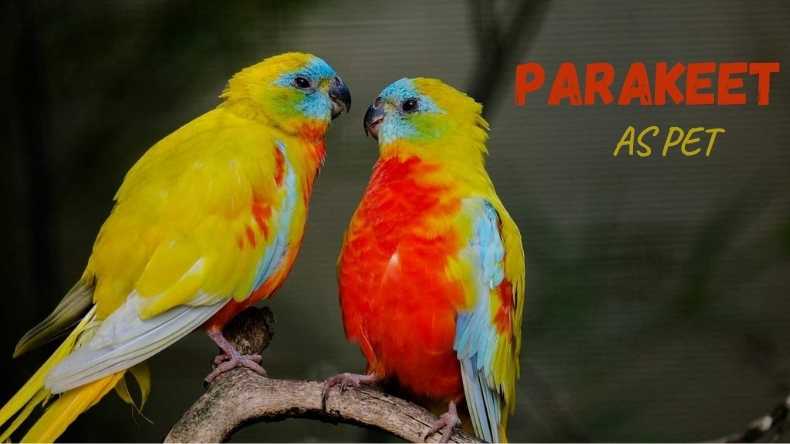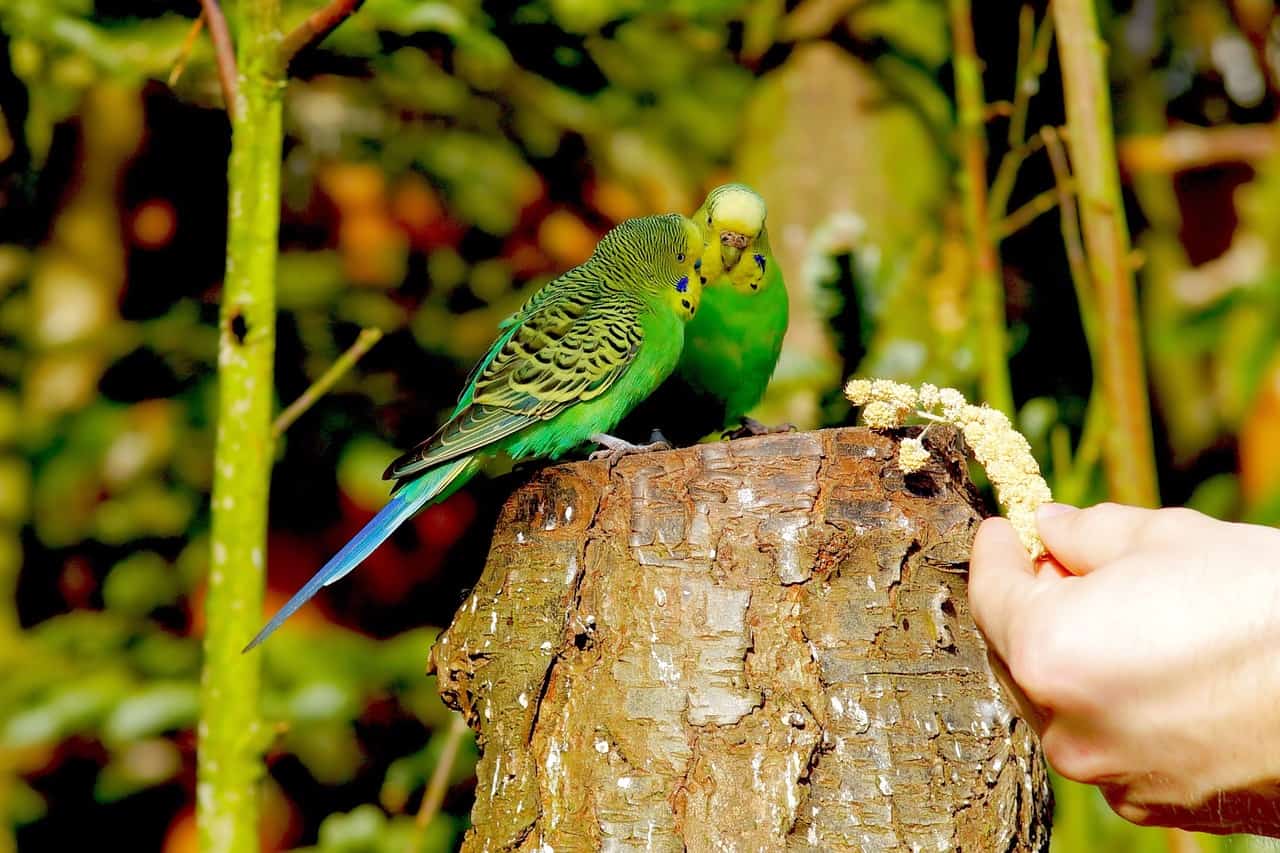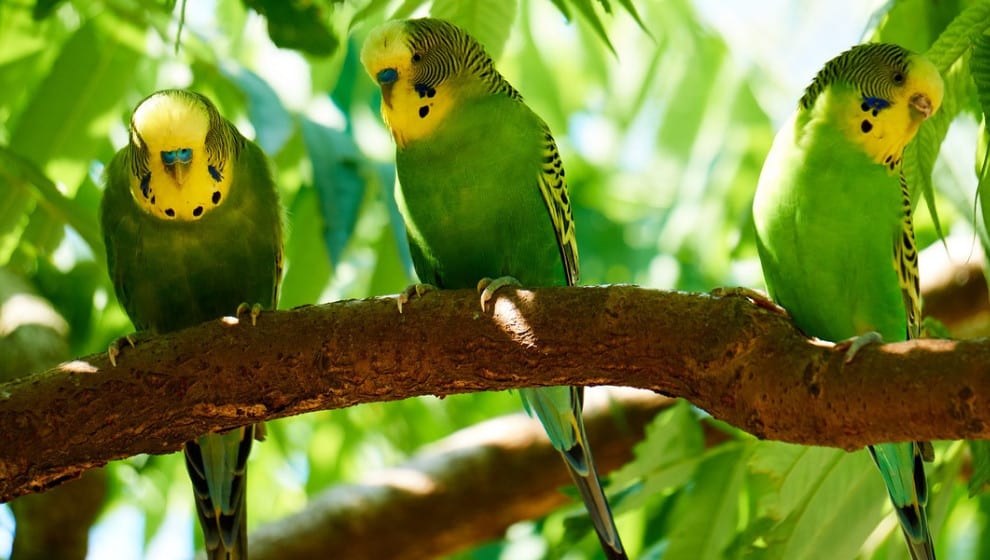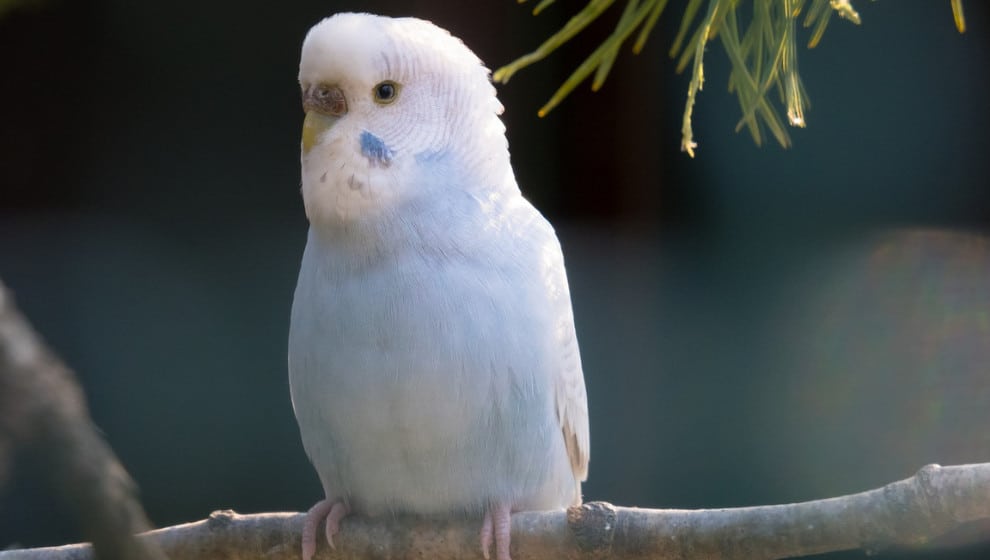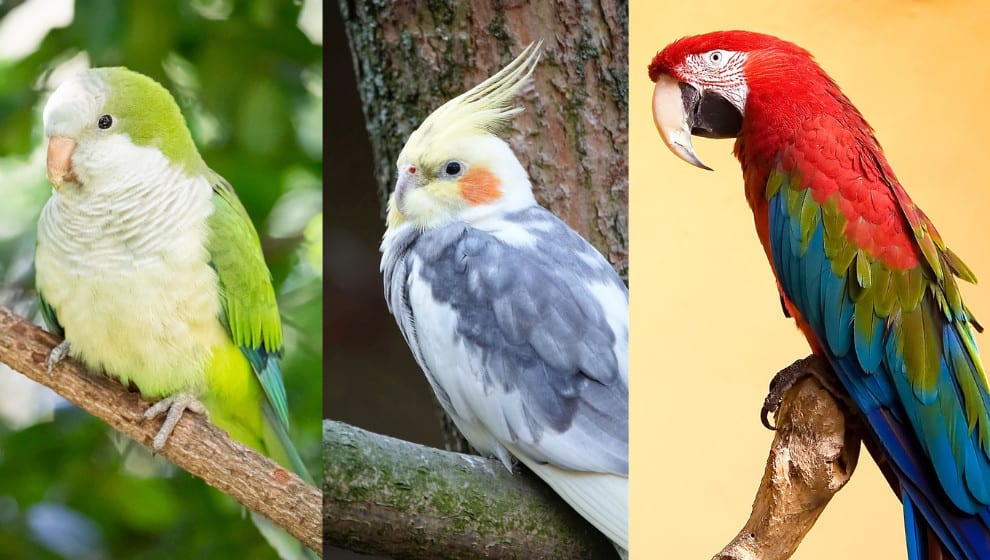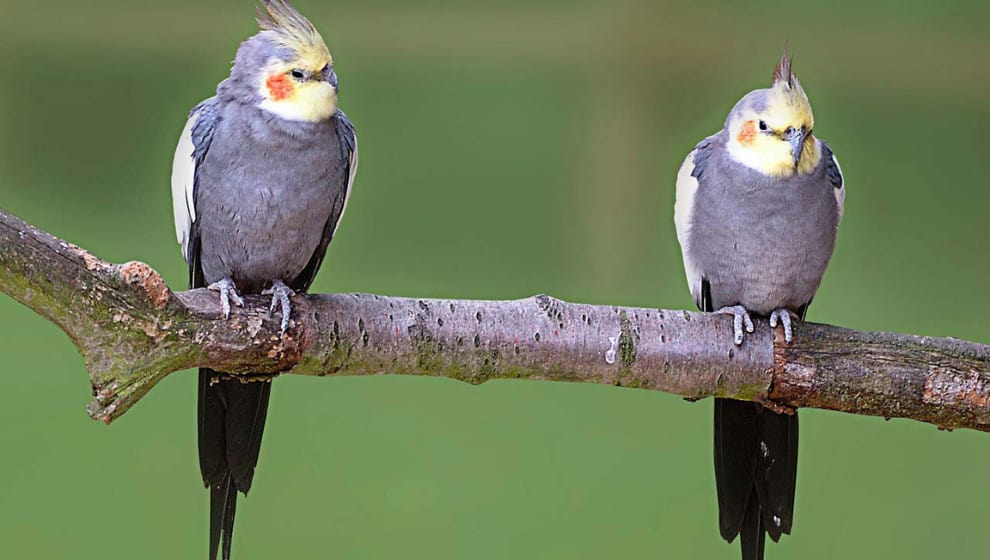A conure is a group of smaller parrots that include parakeets that spread their rainbow colors beauty in their surroundings. Smaller ones conures are famous family pets, people love to train them for doing tricks, and they would be trained to tie knots with their beaks. Cuddly conures are all lovely species from the animal kingdom, so never get scared if they suddenly climb over your shirt and tries to strike your head with their beaks.
Conures, which are found in various sizes, often charm people with their inquisitive personalities. They are considered household pets, so they love being around humans, specifically during mealtime, and hanging out with their beloved ones is what they truly adore.
Conures are popular pet companions: they have vibrant colors and colorful nature to be a jolly mate for humans. Conures belong to varied groups of parrots.
These active creatures need ample space to move freely within the enclosure. Accommodation with toys means that the cage must be up to 36 inches long, 24 inches wide with the same height a width. Conures are water lovers- put a water dish in their home and often shower them with a spray bath to give a freshening feel.
A nutritionally balanced diet is supplemented with fresh fruits and vegetables to bring healthy food to the table. If you are consistent about taking care of your parrot’s nutritional supply, you can expect them to stay with you for around 20-30 years.
Even though cuddly and playful, they can get loud repeatedly, so handle it with a trick. They feel curious and remain shy, mostly so that these smart birds always need activities. Get ready to arrange a lot of toys if you have a plan to adopt one.
Indeed, great family pets due to their outgoing nature, cuddly and fun-loving moods.
Table of Contents
Do Conures Like To Be Pet?
Yes, they do adore the company of humans. You will have a fun time in their presence, and they are touchy and lovely to keep as domestic pets.
As a good starter bird, conures are cute little birds you can have a lot of fun with. They are handfed, and it is you will have great fun training them. Their humble nature is the leading factor for their popularity as domesticated animals. So when selecting a bird, keep in mind about establishing a healthier relationship with it by taking care of its emotional boundaries. There can be several ways to teach your parrot manners and useful words but avoid having excessive physical touch. It can help him to learn to control his aggressiveness and emotional triggers.
Do Conures Like To Be Held?
Yes, they do like to be held but with love and respect. A gentle soft touch will give them the security to move beyond their enclosure. Taking them out of their cage requires your support; give them a hand to a site on it for coming out of the door. Be very polite during the process that will not destroy their pleasure to move freely.
The understanding temperament of your conure is important to create a stronger bond for several years. Birds are sensitive little creatures and tend to spend many years with their entire family members.
Don’t ignore their mating behavior; maintain healthy boundaries in physical touch. Try not to access their mating zones; this will help them understand friendship with their owner; instead of using the wrong body language, be courteous but firm. They feel the warmth and get deeply attached to their masters, and we know how to keep their sexual instinct in control.
How Long Do Conures Live?
In captivity, these birds can live from 10 to 15 years on average with better health conditions. The common health problems include Fracture bleeding Syndrome, which indicates a lack of vitamin K and Pacheco’s disease. It is vital to keep a vigilant health check to ensure your pet’s safety; maintaining your bird’s health can ensure the bird’s long period.
Some of the conures reported living with their masters for up to 20 years with ideal living conditions. Keeping in view the other factor associated with birds living in captivities. The life span of the pet is entirely dependent on the efforts of an owner. Natural elements are diseases and hurting; keeping a vigilant check on health issues can reduce the chances of getting the fatal disease.
Do Conures Like To Snuggle?
I guess probably all of us enjoy the cuddle of our parrot now and then, whether hugging out of love or touching your face or sitting on the chest, perhaps just offering their heads for a nice snuggly time. They will like to have “snuggle time” with their favorite family member—the most precious time to make lifetime memories with your lovely pet.
Trust me; this innocent-looking creature has everything to get trained with the routine life schedule. Conures are well known for their cuddling nature. Still, it needs time to warm up its body, and this quiet time is important for its physical and mental well-being. Some birds will not like physical touching and will take it too seriously if you ever try to touch their face or another body part; they need more time to understand your touch of love, so be patient and composed.
In case you are facing resistance from your pet side and crave to cuddle your conure, you can take the initiative with gentle scratches’ through some toy. As your conure feels easy with this touch, you can further move with its approval for using your hands to scratch his body. Be tricky and methodical to train him for being an amicable pet.
Do Conures Talk?
Yes, Green-Cheeked conure can talk clearly. They can get better with a few words practice; although they have a slightly gravelly voice, they are still very fond of mimicking human speech. They will not speak much, but they try to follow their entire family members’ language with frequent human interaction. It is important to realize that it is not guaranteed with a purchase; always, all Green-Checked conure’s will not pick new words quickly; it may vary according to the parrot’s temperament.
Do Conures Bite?
No, they don1t bite at all. Any bird tries to bite when frightened or scared. Sometimes conures try to bite you in anger but can be avoided by taking care of their mood swings. Biting is something related to the temperament of the bird. Toddlers should be kept in observation due to less self-defensive power, an angry bird can hurt them, and there is a possibility that can’t be ignored if your parrots. There are chances of biting, but it’s not their regular habit, so you have to be aware of their physical contact with minor family members.
Sacred animals need to be treated with great care, be patient, and train to handle their emotions wisely. Parrots are intelligent birds, and you can expect them to learn things quickly with fewer efforts than other mammalian family pets.
A bird has a beak, so you can expect some pinching, picking, and biting, especially for parrots; it is not uncommon. Love bites are ways of showing affection rather than a deep bite to make a hole in your skin is something serious. Your center might be feeling depressed, sick, possessive, or even unsacred in a certain atmosphere. Figure out by observing his changing habit, and you will soon get a clue about this unusual behavior. Learn to read your bird’s body language to avoid hurting bites, open beak, sleek body feathers, and ruffled neck is seen as early precursors for a parrot. Learning his attentions will help you to control him by diverting his attention towards something else.
Do Conures Like To Cuddle?
Yes, they do respond to your cuddling in the form of expressing their joy through playing. But one must think twice before adopting a pet if the person has a busy work schedule. They will not tolerate your ignorance for a long time; getting sick or keeping quiet for many days can be their possible reaction to show their annoyance.
These lovely creatures develop a stronger bond with their owners; they need time and attention. Be extra vigilant about their emotional needs and take care of their happiness well; that is the only way to keep them active and healthy. Being intelligent birds, they are affectionate towards their masters but can be very noisy at many times. A small apartment is not an ideal place to keep conures due to its high-pitched sounds.
What Do Conures Like To Eat?
Conures eat a wide range of vegetables, fruit, and seeds, so various food options are available to serve them.
- Raisins
- Potatoes
- Carrots
- Corn
- Pasta
- Hemp Seeds
- Sunflower Seeds
Some people serve them with additional calcium supplements that consist of 60%-70% of their diet. The rest of their diet should be made of fresh fruits and vegetables. Market-based nutritional supplements also tend to help them in ginning energy through valuable food products.
Follow these simple rules to feed your parrot :
- Always monitor the amount of food; it should be sufficient to fulfill the need of the day.
- Offer fresh, clean water every day.
- A variety of fruits and vegetables must be a part of the daily meal.
- Give the food and water dishes clean.
- If it is not accepting a food item, try it on some other day.
How Do Conures Sleep?
Conures have a natural habitat of trees to sleep calmly, and they sleep in the wild with their flock mates. This instinct is related to their instinct for being interactive towards other fellows. The only possible issue is through that can trigger a peaceful sleep is due to hormonal aggressiveness. If the male partner persists in this behavior, you have to change its cage to avoid any possible damage due to the male parrot’s harsh attitude.
How Do Conures Show Affection?
When a conure is feeling affectionate for their human owner, mostly they groom them. It is a sign demonstrating their mental satisfaction. Infect, it is a way to pay gratitude for your unconditional love towards them.
Conures will touch their owner’s physical features out of love, like they will cuddle their beards, mustaches, clothing, and hair.
They might kiss you; a happy conure is very expressive at times. Rubbing its beak against you is also a sign of affection on the face, lips, and cheek.
They might nibble around your neck or arms; similarly, many of them will try to adopt the smooch sound with human kisses. Licking with their small tongue is their favorite gesture of warmth; you can feel it like a kiss. Extra orney conure will even bite you with their beak to show their emotions.
Do Conures Molt?
Conures usually molt once a year. However, the process can take place more than once a year. The molting lasts for at least two months. You will observe delicate new feathers coming out. The feathers are new and soft, and removing them can be fatal to your bird.
How Do You Get To Know That Your Conure Is Molting?
Molting is a phenomenon that starts from the innermost layer of feathers and gradually comes outward. The central flying feather on the tail or the middle flying feathers on the wings starts shedding above. But as there are many different categories of birds so you can witness multiple molting signs.
Molting causes itching. Birds try to reach their beak on their affected skin to satisfy their itching needs. You may see missing feathers from your conure’s tail at the beginning of the molting process. Even the feathers will shed quickly; still, you will rarely see them with bare skin. On the other hand, a hard molt will leave your hen as if she went through a chicken plucker.
Do Conures Get Along With Budgies?
There is a notable size difference between the two. A conure is a strong beaked bird. A conure may attack your budgie to death. Budgies are fragile, small, and comparatively less powerful than a conure. If the question is to keep a conure with a budgie under one roof is safe? Then the answer is simple… No. Conure may bite your delicate small bird and can cause serious harm. Acting defensively, a budgie could try to bite conure as well. In all this tom and jerry fight, you may get your budgie either injured seriously or even dead. Keeping both the birds in the same cage will create tension and nothing else.
In case you have a conure and a budgie both at your home, then for the safety of your budgie, keep them in different cages. The distance between their bars should be enough that the conure cannot reach the budgie. It is not safe at all to house a conure and a budgie together. It is highly recommended not to house different species of birds together in the same cage.
Do Conures Get Along With Cockatiels?
The cockatiel is a comparatively gentle and weak bird. A conure is a strong beaked and powerful bird. It is not recommended to keep a conure and a cockatiel together in the same cage. However, if you keep them both in one cage, they will either end up behaving like strangers or conure may damage your cockatiel. Conure is somehow more demanding, strong, and bites hard. However, cockatiel gives a pinch as a counterattack.
It is the bird’s nature to drive out the sick or injured bird out of their flock. In case the cockatiel gets sick or injured, then conure will not want to live together. It is pretty clear if a cocktail and conure somehow managed to live together, they still won’t love each other; they are just tolerating. For the safety of cockatiels life, it is necessary not to keep both bids in the same cage, ESPECIALLY without supervision. Use a separate cage to keep different species of birds for their life safety.
What Do Conures Need In Their Cage?
Conures are active and playful. As conures are big, that’s why a big or a medium-sized cage is best suitable for a conure. They love and enjoy hanging on swings and ropes. Toys, hoops, rings, swings, chains are appreciated to hang in their cage. Conures love to hide under soft clothes. It will be a great pleasure for a conure to have woven cloth, light soft fabric, or any fuzzy toy in its cage. Place some small cardboard cut-outs, and conure loves to chew to such items.
Conures want their cages in the high visibility area of your home. They love to interact and socialize with their owner. Water and food dispensers are the vitals of any cage. Approximately a conure adjusts in a 36 x 24 inches cage accommodated with swings and colorful toys. Besides all this, you need to pay keen attention to cleaning the conures cage. Being an active and playful bird conure spreads a lot of mess in its cage.
Do Conures Need Grit?
Knowledge about birds’ operational requirements is constantly evolving. It is due to the increased awareness gain through recent research about Different Birds. Similarly, parrots need the proper balance of proteins, carbohydrates, vitamins, minerals, and fats.
Conures have various seeds, nuts, berries, and vegetation, such as leaf birds; in the world, some would like to eat insects, and they would be called raid former crops.
Controversy exists over the need for gravel for the parrot. Some strongly believe that grit is a necessary part of their mechanical food breakdown. It would likely help them to digest food. However, we are now pretty sure that birds can live well without grit. Some birds will have to face a problem in case the grit is overeaten.
Do Conures Mate For Life?
Yes, they keep mate for life; they would likely benefit from the monogamous relationship humans possess.
You have to be extra careful while having a parrot, and they can consider you more than just friends. If you are not taking care of your cuddling behavior, you transmit wrong signals for your pet.
Parrot living in captivity are dependent on their own to understand social cues. Since they are brilliant, they can pick up their social cues rather quickly; if you own a single parrot, they might start considering us they are mates. The only way to avoid this mindset is to avoid touching their ‘matte only’ zone.
Parrots like to reserve a few body parts as their waiting zones. Preening, cuddling, and touching are restricted for the mates only; touching other body parts except the head and neck could deliver a wrong message.
How Many Times A Year Do Conures Lay Eggs?
Conures produce at least two clutches of eggs per year, each time, and they will have 3-5 eggs on average. They will be ready to hatch right after the 25-27 day incubation period.
Remember, pet owners, and you have to take care of their clutching. If your pet is laying eggs more than two times a year, it is something that can suffer them with low calcium and vitamin deficiency. The process is very hard on her system, and you have to take the necessary actions to stop him.

